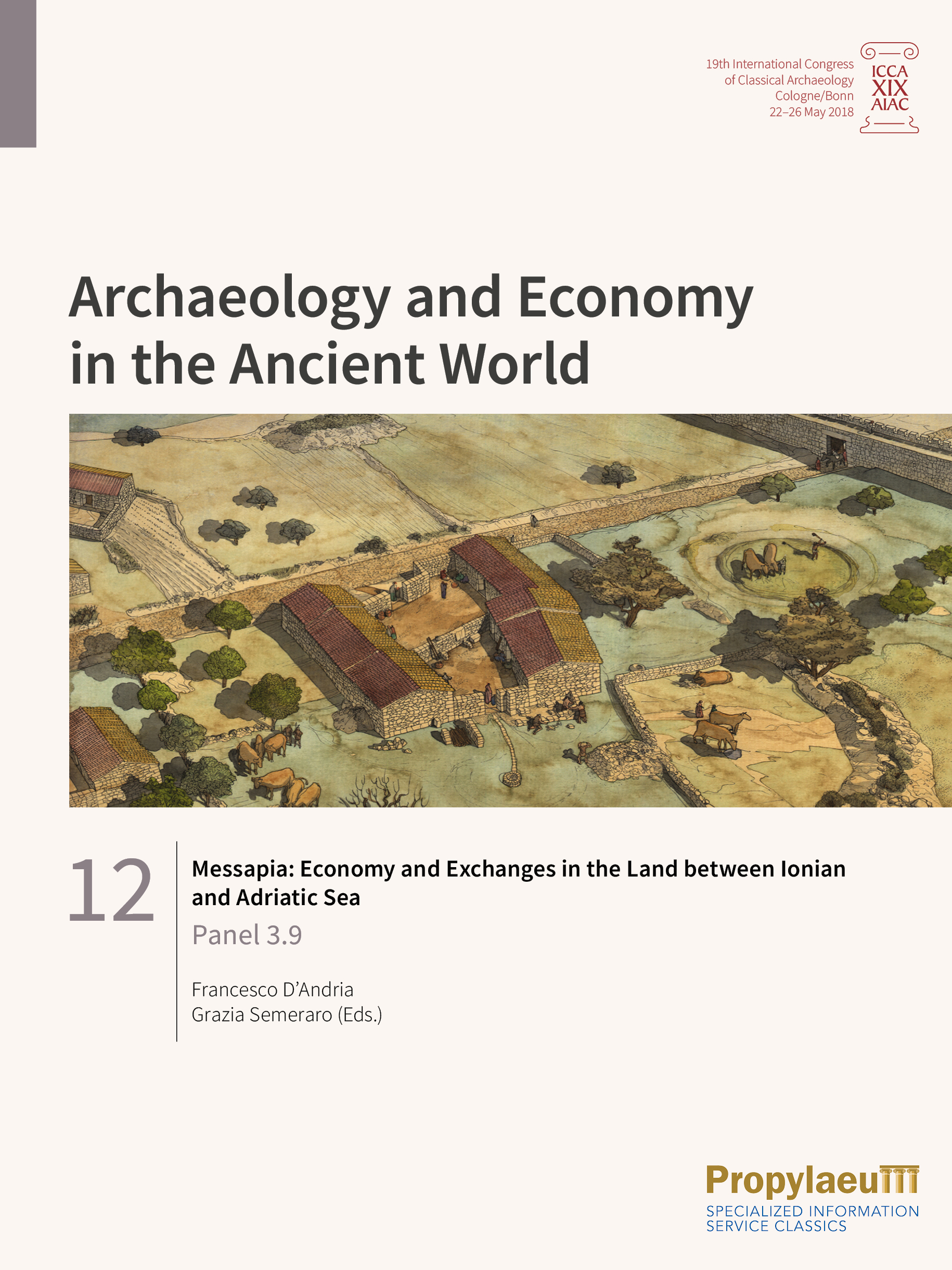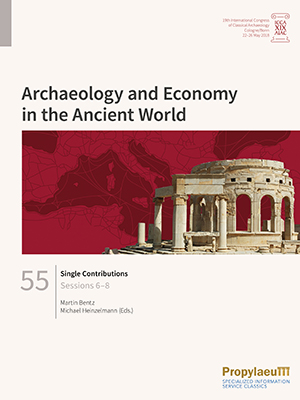Meo, Francesco
Messapia: Economy and Exchanges in the Land between Ionian and Adriatic Sea: Panel 3.9
Ever since the Bronze Age, the geographical position of Messapia, between the Ionian and Adriatic seas, has enabled the development of relations characterised by continuity within the framework of mobility in the Mediterranean. This volume focuses on certain aspects of the economy in Messapia, with particular reference to bio-archaeological themes (including livestock rearing and the consumption of animal resources), textile production (applying archaeometric methods to residues of fabric) and imports of luxury products from Greek cities and the Greek colonies of southern Italy. The presence in grave goods of imported prestige items has been investigated with reference to the forms of self-representation adopted by the Messapian aristocracy in both funerary rituals and manifestations of power within the settlements. The variety of religious manifestations in the Messapian world constitutes a particular case study linked to cultural exchanges, which, thanks to the recent discoveries of places of worship, can now be investigated in detail. Important in this regard are the discoveries made in Castro, where the Athenaion – linked to the myth of Aeneas’s first landing on the shores of Italy – was identified.
Sessions 6–8, Single Contributions
Economic aspects permeate all areas of public and private life in ancient societies, whether in urban development, religion, art, housing, or in death. Research on ancient economies has long played a significant role in ancient history. Increasingly in the last decades, awareness has grown in archaeology that the material culture of ancient societies offers excellent opportunities for studying the structure, performance, and dynamics of ancient economic systems and economic processes. Therefore, the main objective of this congress was to understand economy as a central element of classical societies and to analyse its interaction with ecological, political, social, religious, and cultural backgrounds. The theme of the congress was addressed to all disciplines that deal with Greco-Roman civilization and their neighbouring cultures from the Aegean Bronze Age to the end of Late Antiquity.
This collective volume contains single contributions from sessions 6, 7 and 8, which discuss questions about consumption and investment in everyday life, sanctuaries and urban contexts, as well as questions about the role of the city in the ancient economy.








